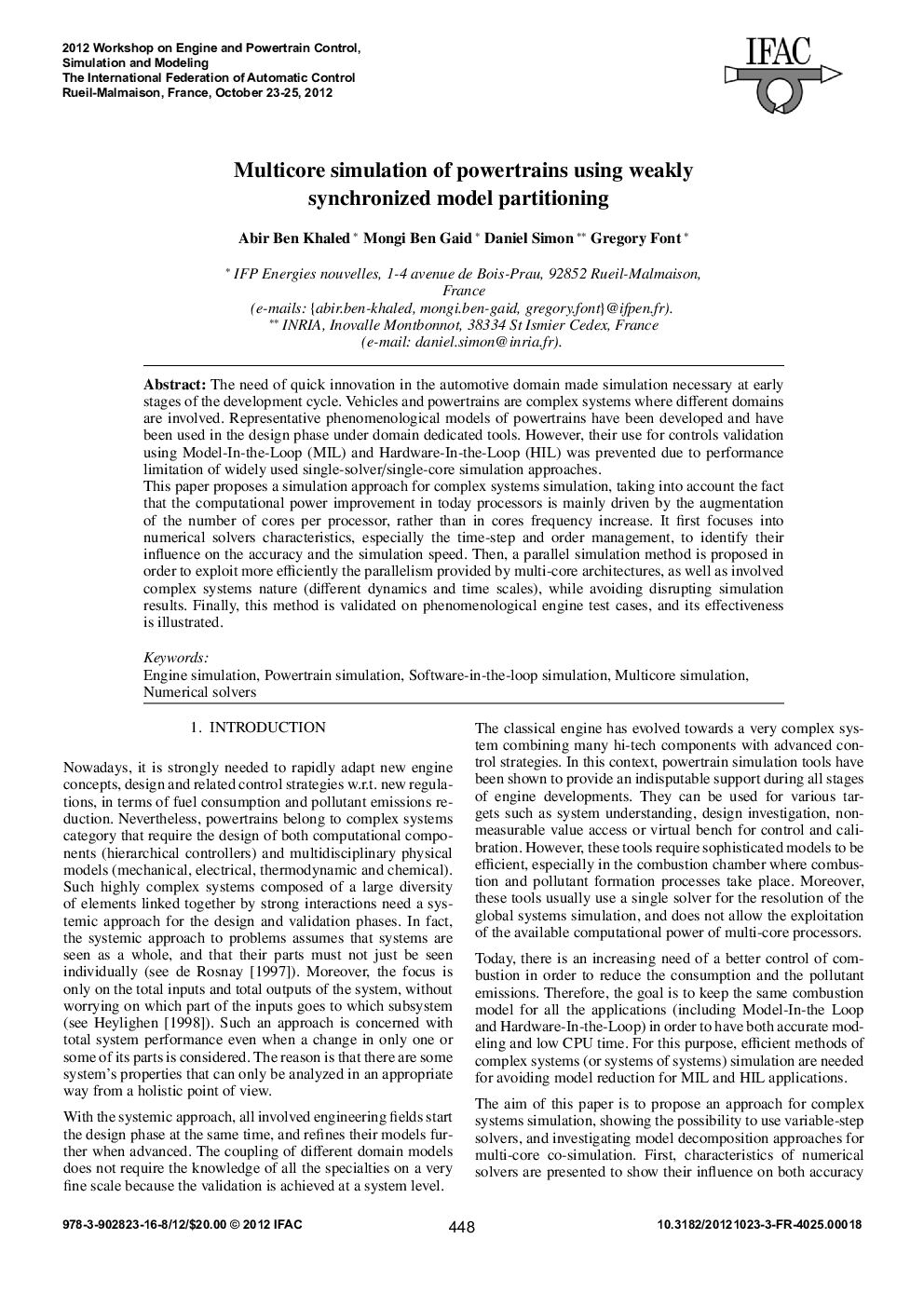| Article ID | Journal | Published Year | Pages | File Type |
|---|---|---|---|---|
| 713849 | IFAC Proceedings Volumes | 2012 | 8 Pages |
The need of quick innovation in the automotive domain made simulation necessary at early stages of the development cycle. Vehicles and powertrains are complex systems where different domains are involved. Representative phenomenological models of powertrains have been developed and have been used in the design phase under domain dedicated tools. However, their use for controls validation using Model-In-the-Loop (MIL) and Hardware-In-the-Loop (HIL) was prevented due to performance limitation of widely used single-solver/single-core simulation approaches.This paper proposes a simulation approach for complex systems simulation, taking into account the fact that the computational power improvement in today processors is mainly driven by the augmentation of the number of cores per processor, rather than in cores frequency increase. It first focuses into numerical solvers characteristics, especially the time-step and order management, to identify their influence on the accuracy and the simulation speed. Then, a parallel simulation method is proposed in order to exploit more efficiently the parallelism provided by multi-core architectures, as well as involved complex systems nature (different dynamics and time scales), while avoiding disrupting simulation results. Finally, this method is validated on phenomenological engine test cases, and its effectiveness is illustrated.
